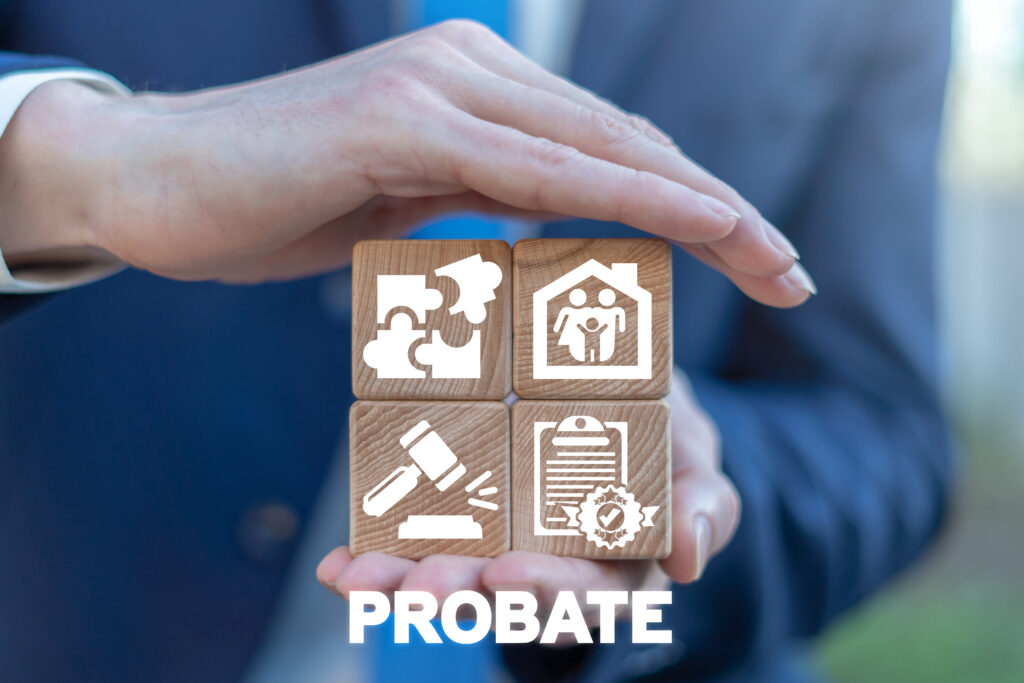Navigating End of Life Planning – What happens when a loved one passes?
Although planning for death can be hard to face, you want to assure that you have all the necessary steps and documents in place as soon as possible. What happens logistically when someone passes? What happens to their stuff? Getting familiar with your state’s probate court process, and making a will or trust will help you cover all necessary outcomes for when the time comes. By having all bases covered, you can focus the remaining days cherishing time with your loved ones without worrying about the possible complications.
- Navigating End of Life Planning – What happens when a loved one passes?
- The State Probate Process – What happens if you don’t properly plan?
- The Benefits of Having a Will – Save Time, Save Money
- Trusts – Avoiding Probate and Simplifying the Planning Process
- Why would you want to avoid probate?
- Helpful Resources and Links
The State Probate Process – What happens if you don’t properly plan?
When someone passes, their belongings will go through state probate, which is the court process of moving property from the dead to the living. The probate process involves:
- Petitioning to tell the court that someone has passed.
- Letting the court know who the creditors are.
- Establishing the people are that may or may not be getting anything out of an estate.
- Letting the court know whether or not there is a will in place.
The Probate process only applies to things that are owned in a dead person’s name only. In general, probate involves looking at the default errors in the intestate succession rules, and to confirm the necessary beneficiaries of assets. If will is not in place, the standard occurrences of beneficiary designation will go to a spouse. At this point the court would then initiate the liquidating of assets to be distributed, and without a will this process can range from 9 months to 3 years.

The Benefits of Having a Will – Save Time, Save Money
A will names who should be in charge, who should get what, and how it should happen.
If you have a will, you are still going to have to go through the state probate process, however your court dealings will be much smoother. Establishing a will assures direct control of your assets that can then be ready to be distributed in a timely manner.
As mentioned, if a will is not in place, the state will deem the natural objects of your bounty, aka your stuff, only to the rightful heirs – a spouse and/or children. By having a will, you can legally designate other people as beneficiaries. Life gets complicated, and often the rightful heirs are not the people someone wants to leave assets to. A will gives you control over this outcome, and allows you to name beneficiaries that may not be immediate family, such as a deserving friend or caregiver who was a more significant part of your life.
Trusts – Avoiding Probate and Simplifying the Planning Process
Trusts are essentially wills that allow you to avoid the probate process, with a few other substantial benefits. Although trusts are often considered to be a more expensive route at first, you want to consider the potential headaches of the probate process.
Why would you want to avoid probate?
The main reasons to avoid probate are: 1) time, 2) cost, and 3) public record.
Going through the court process of assigning proper accreditation and assets can be a huge time suck, depending on available dates and the amount of arbitration. This process will only get more expensive as time goes by, and at the end you’ll have all your dealings on public record – and who doesn’t want to avoid that!
A Trust may solve this problem
A trust allows you to avoid probate all together, and to establish all your outcomes privately. Akin to a will, a trust names necessary beneficiaries of assets as you wish. Apart from avoiding the court process, a trust is uniquely beneficial for dealing with complicated situations of said assets. For instance, if you have beneficiaries that need money quickly, such as young children, a trust assures they can receive money directly and quickly within the first year.
A trust is also advised if you have multiple properties across different states, as without a trust you will have to go through the probate process of each state – NOT FUN. By having a trust, the named trustee can take care of all necessary tax paperwork while avoiding multiple court processes.
Are you a business owner? If you are the decision maker of a business and you pass way without a trust, you will of course have to go straight to probate with the kicker being that establishing a representative for your company’s business decisions can take months to years. This would mean there is no one left in charge to maintain the day to day operations of a business such a payroll, too often leading to the ending of the company you built.
A trust allows you to deal with complicated situations effectively. A little more thoughtful time in the beginning can avoid substantial complications of assets in the end.
You are not alone. Establishing end of life plans can be emotionally tolling and exhausting, as trying to make sound decisions and getting caught up in legal jargon in the face of death can seem all too trivial and overwhelming. However, being sure you establish a will or trust, as well as understanding your state’s probate process, will leave you with no surprises. You can then necessarily focus on passing or grieving, and enjoying the final moments without worrying about what comes next. For any questions, always be sure to get in touch with an elder law attorney, as these processes can be cumbersome and different state by state.

Helpful Resources and Links
The National Academy of Elder Law Attorneys (NAELA) is dedicated to improving the quality of legal services provided to older adults and people with disabilities. Elder and special needs law includes helping such persons and their families with planning for incapacity and long-term care, Medicaid and Medicare coverage (including coverage of nursing home and home care), health and long-term care insurance, and health care decision-making.

